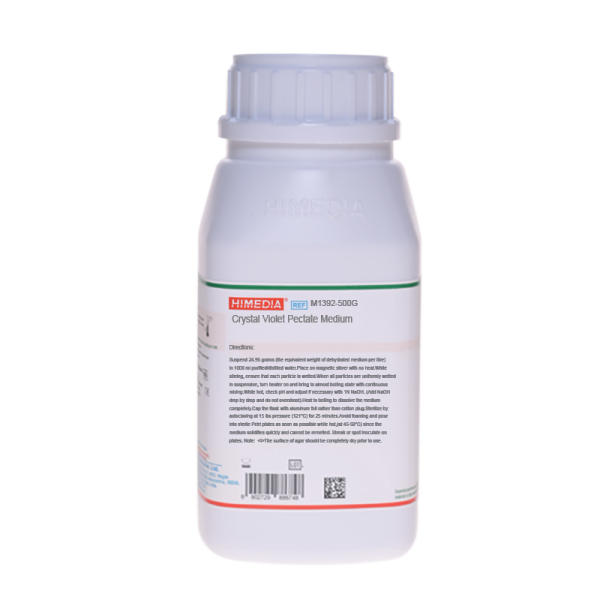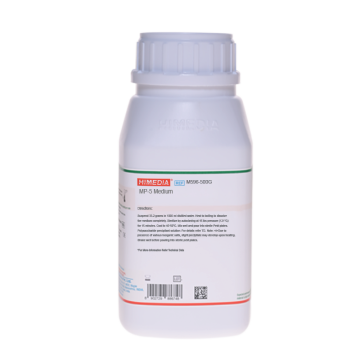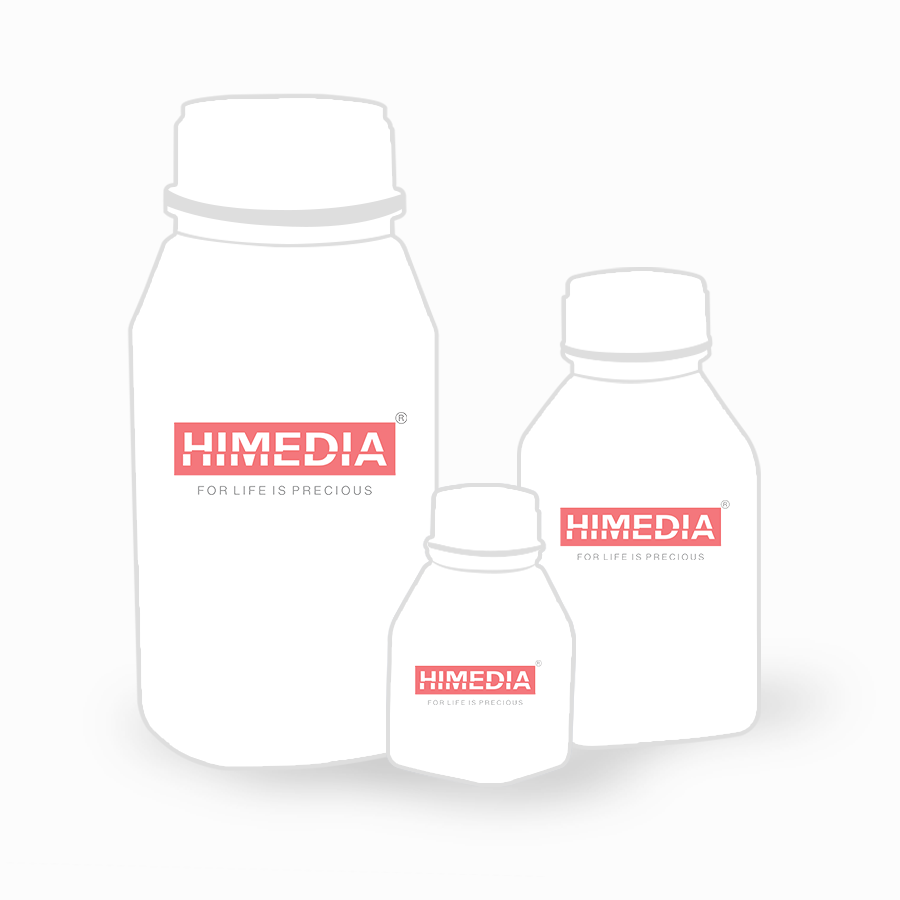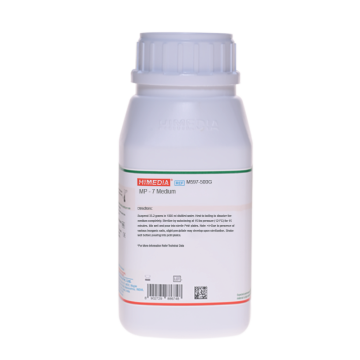 Your enquiry has been submitted
Your enquiry has been submitted
Crystal Violet Pectate Medium
Crystal Violet Pectate Medium is recommended for the cultivation of pectolytic microorganisms, which can degrade sodium polypectate in the medium.
Composition**
| Ingredients | Gms / Litre |
|---|---|
| Sodium polypectate | 18.000 |
| Sodium hydroxide | 0.360 |
| Sodium nitrate | 2.000 |
| Calcium chloride.H2O | 0.600 |
| Crystal violet | 0.0015 |
| Sodium lauryl sulphate | 0.100 |
| Agar | 4.000 |
Final pH (at 25°C): 7.2±0.2
**Formula adjusted, standardized to suit performance parameters
Directions
Suspend 24.96 grams of dehydrated medium in 1000 ml distilled water. Place on magnetic stirrer with no heat. While stirring, ensure each particle is wetted. When all particles are uniformly wetted in suspension, turn heater on and bring to almost boiling state with continuous mixing. While hot, check pH and adjust if necessary with 1M NaOH. (Add NaOH drop by drop and do not overshoot). Heat to boiling to dissolve the medium completely. Cap the flask with aluminum foil rather than cotton plug. Sterilize by autoclaving at 15 lbs pressure (121°C) for 25 minutes. Avoid foaming and pour into Petri plates as soon as possible while hot, (at 50°C) since the medium solidifies quickly and cannot be remelted. Streak or spot inoculate on plates.
Note: The surface of agar should be completely dry prior to use.
Principle And Interpretation
Polypectate or pectate refers to pectic acid with carboxyl groups in the salt form. Pectinolytic organisms refer to the pectin-degrading organisms and pectolytic organisms refer to pectic acid or pectate-degrading organisms. Most pectolytic organisms are associated with raw agricultural products and with soil (1). This medium contains crystal violet, which makes it selective for gram-negative bacteria and prevents growth of unwanted organisms. Polypectate serves as suitable source of carbon for polypectate utilizers. Production of enzyme by a culture on this medium is detected either by observing depressions in the gel around the colony where the substrate has degraded, or by flooding the plate with a precipitant solution (1% aqueous solution of hexadecyltrimethyl ammonium bromide can be used as a precipitant). A clear zone will appear around producer colonies where the substrate has degraded and thus precipitation does not occur, while non-producing colonies will be surrounded by opaque gel containing the non-degraded pectin or pectate substrate. Alternately, to study enzyme activity, holes can be made in agar gel plates with a cork borer in order to assay liquid samples, such as culture filtrates. This is referred as well plate or cup plate technique for enzyme assays.
Quality Control
Appearance Cream to yellow homogeneous free flowing powder
Gelling Semisolid, comparable with 0.4% Agar gel.
Colour and Clarity of prepared medium Bluish grey coloured, clear to slightly opalescent gel forms in Petri plates or tubes
Reaction Reaction of 2.49% w/v aqueous solution at 25°C. pH: 7.2±0.2
pH: 7.00-7.40
M1392: Cultural characteristics observed after an incubation at 35-37°C for 72 hours.
| Organism | Growth | Liquifaction / sinking of colonies |
|---|---|---|
| Erwinia carotovora ATCC 15713 | luxuriant | positive reaction |
| Erwinia chrysanthemi ATCC 11663 | luxuriant | positive reaction |
Storage and Shelf Life
Store below 30°C in tightly closed container and the prepared medium at 2 - 8°C. Use before expiry date on the label
Reference
- Vanderzant C. and Splittstoesser D. F., (Eds.), 1992, Compendium of Methods for Microbiological Examination of Food, 3rd Ed., APHA, Washington, D.C.
| Product Name | Crystal Violet Pectate Medium |
|---|---|
| SKU | M1392 |
| Product Type | Regular |
| Physical Form | Powder |
| Origin | Chemically defined |
| Packaging type | HDPE |
| References | 1. Vanderzant C. and Splittstoesser D. F., (Eds.), 1992, Compendium of Methods for Microbiological Examination of Food,3rd Ed., APHA, Washington, D.C. |






